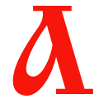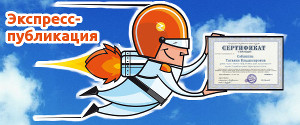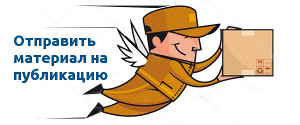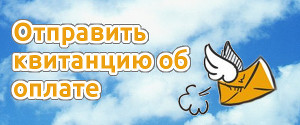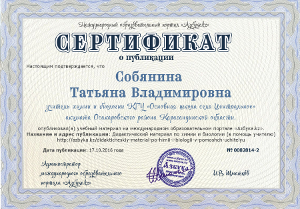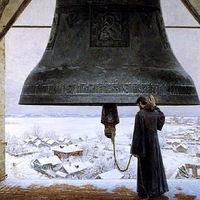Тема урока: «Nauryz — Kazakh New Year»
|
Хазова Галина Андреевна учитель английского языка, высшей квалификационной категории, стаж 29 лет. КГУ «Средняя школа №17 имени М. Ауэзова» акимата города Усть–Каменогорска, Казахстан, Восточно-Казахстанская область, г. Усть–Каменогорск |
 |
Тип урока: урок усвоения новых знаний с использованием элементов технологии развития критического мышления.
Цель: формирование представления о культуре, традициях Казахского народа на примере празднования Наурыза.
Задачи:
обучающие: дать новую информацию о традиционном празднике Наурыз в Казахстане, тренировать лексику по теме в разнообразных упражнениях;
развивающие: развить навыки монологической и диалогической речи, чтения, письма;
воспитательные: воспитание у учащихся интереса и уважения к культуре родной страны; развивать положительную мотивацию к дальнейшему изучению английского языка.
Формы: фронтальная, индивидуальная, групповая, развитие навыков общения в группе, толерантного понимания других людей.
Оборудование урока: компьютерная презентация к уроку, дидактический материал о Наурызе, музыка Кара Жорга, ватманы, фломастеры, стикеры, открытки, ингредиенты для приготовления баурсаков, готовые баурсаки, разноцветные ленточки, веточка дерева.
I. Organization moment.
Good morning, students! Good morning, our dear guests! I’m glad to greet you at our lesson.
Today you have got an unusual lesson.
I want you to look at the blackboard and guess what you are going to speak about today at the lesson.
Use the ABC, break the code and you’ll get the theme of our lesson. For example: the 1st letter of the English alphabet is Aa.
14
1
21
18
25
26
(Pupils name the letter of each number and get the theme of the lesson)
(Key: 14 — n, 1 — a, 21 — u, 18 — r, 25 — y, 26 — z)
P: We’re going to speak about Nauryz.
T: Right you are.
II. Vocabulary revision.
Before speaking about Nauryz let’s revise the words according to this theme.
Our next task is WORDS WITH MISSING LETTERS.
The words you can see on the board have missed letters. Fill in the right missing letters, read and translate them in Russian.
(Print the card of the word with missed letters on one side and key word on the other one).
1) b — - - - - ing
2) c — - - - - - te
3) eq — - - - x
4) w — - h
5) c — - - - - - - - - tions
6) sy — - - - - ze
(Key words: beginning/celebrate/equinox/wish/congratulations/symbolize)
III. Textwork «Nauryz — Kazakh New Year».
Do you want to learn about celebration of Nauryz in our country?
On each desk of the classroom you can find an envelope. In each envelope there’s a cut sentence about Nauryz. Your task is to put the words in the correct order to make the right sentences and then you’ll read them aloud. What is equinox? Pay attention to the pronunciation of this word /’i: kwinoks/. You can explain it in Russian. If you can’t explain it, read the definition of it on the board — It’s time of the year when the day and the night are of equal length.
(Pupils work in pairs and make up the sentences from the words; a teacher goes pass the desks, checks the sentences of each pair and then the pupils read them aloud)
1. Nauryz is a great holiday for all people of Kazakhstan.
2. It’s the beginning of a new year.
3. People celebrate this holiday on the 21st of March, the day of the spring equinox.
4. Nauryz symbolizes goodness and wealth, happiness and love and a great friendship day.
5. On Nauryz people make wishes and give congratulations.
6. On the Nauryz holiday, people wear beautiful national clothes, listen to and sing Kazakh songs, dance Kara Zhorga, play musical instruments and traditional games.
7. Beshbarmak, kuyrdak, kozhe, baursak are traditional meals on the holiday.
IV. Writing wishes and congratulations on the postcards.
1). Brain Storm.
You’ve said that on Nauryz people make wishes and give congratulations. What do we wish on the holiday Nauryz? (Pupils name the words and a teacher writes down them on the board)
2). Making up wishes on Nauryz.
Make up your own wishes and say them to each other.
For example: I wish you success, happiness, prosperity and good health on Nauryz. Or
Let this holiday bring you a lot of pleasure and happiness!
(A teacher explains to pupils the rules of the usage of the verbs «wish» and «let» in English. Pupils make up their own congratulations, write down them on the piece of paper and stick them on the board. )
Congratulations on Nauryz holiday!
Let this holiday bring you a lot of pleasure and happiness!
Let the Nauryz bring to your life new and nice changes.
We wish you and your family well-being, happiness and joy!
I Wish you happiness, love, success and prosperity.
Wish you lots of love, joy and happiness.
With a holiday! Joy, happiness, health, love!
I wish you good spring mood and a lot of joy and light
3). Writing down pupils’ wishes on the postcards.
Write down you wishes on the postcards which I have prepared for you.
My dear, parents!
I congratulate you with Nauryz!
I wish you happiness, success, well-being and health.
Your son/daughter.
4). A tree of wishes.
There is a quote: So many countries, so many customs. In KZ there is a custom to tie a ribbon on a branch of a tree to make a wish. Do you want to take part in this activity? Come up to the tree, take a ribbon, tie it on a branch and make a wish.
(A teacher prepares a branch of any tree, ribbons of different colours and a card with written wishes on it. At first teacher takes a ribbon, reads her/his wishes and ties it on a branch, then one pupil takes a ribbon, reads his/her wishes and ties it on a branch, then the second pupil takes a ribbon, reads his/her wishes and ties it on a branch too and etc.)
V. Pause. Dance Kara Zhorga.
You’ve said that on the Nauryz holiday, people wear beautiful national clothes, listen to and sing Kazakh songs, dance Kara Zhorga, play musical instruments and traditional games. Let’s have a rest & dance Kara Zhorga (The teacher switch on the music or video and pupils dance).
VI. Listening to the recipe of baursaks.
Do you like baursaks? Can you cook them? Pupil 1 shows you how to cook them.
1). Before listening to the recipe, pay attention to the following words, their meanings and pronunciation: flour/’flaue/, yeast /’ji: st/, pinch and dough /’dou/. Listen to the recipe of baursaks. Now, Pupil1, it’s your turn.
Pupil 1: Take four glasses of flour, one glass of thick sour milk, one table spoon of yeast, one table spoon of sugar, a pinch of salt and 400 grams of vegetable oil. Make dough, divide it into small balls and fry them.
Taste yourselves!
2). Now listen again the recipe of baursaks and then fill in the sentences of the text on the cards you’re given with the proper words.
Take four glasses of 1 ___, one glass of thick 2 ___ milk, one table spoon of 3 ____, one table 4 ____ of sugar, a 5_____ of salt and 400 grams of vegetable 6_____. Make 7 _____, divide it into small 8 ____ and fry them. 9 ______ yourselves!
3). Exchange you cards, check each other using the key on the board and put the mark.
( Key: 1- flour, 2 — sour, 3 — yeast, 4 — spoon, 5 — pinch, 6 — oil, 7- dough, 8 — balls, 9 — taste.
1- 2 mistakes — «4», 3 mistakes — «3», 4 and more mistakes — «2»)
VII. Check yourself.
1). Let’s control your knowledge about Nauryz Day. Match the question with the right answer and then using the answers retell the text about Nauryz.
1. When do people celebrate Nauryz?
2. What kind of day is it?
3. What does this holiday symbolize?
4. What do people usually do on Nauryz?
5. What are traditional meals on this holiday?
A. It’s the beginning of a new year, the day of the spring equinox.
B. People celebrate this holiday on the 21st of March.
C. Nauryz symbolizes goodness and wealth,
happiness and love and a great friendship day.
D. On the Nauryz holiday, people wear
beautiful national clothes, listen to and sing Kazakh songs,
dance Kara Zhorga, play musical instruments
and play traditional games.
E. Beshbarmak, kuyrdak, kozhe, baursak are
traditional meals on the holiday.
2). There’s an unknown poem about Nauryz. I wish you to listen, read and remember it.
Holiday!
Amazing, funny.
Everybody smiles sunny.
We prepare special food.
Nauryz!
Baursak
Delicious, big.
We enjoy it.
It brings me calories.
Nauryz!
VIII. Reflection.
Our lesson is coming to an end. Please, tell me your opinion about our lesson using these phrases:
• I like the lesson.
• I don’t like the lesson.
• I feel happy.
• I feel tired.
Put your sticker near your opinion. You may use some stickers. Thank you very much for your attention and work! Happy Nauryz Day! Good bye!
IX. Your home task is to retell the text about Nauryz Day.
Список используемой литературы:
studall.org/all2-171005.html
https:/www.officeholidays.com
https://healthfan.biz/4119-baursaks-recipe.html
https://www.youtube.com
acc.pushkinlibrary.kz/top-show/98-news-ardlive-2003.htm
Опубликовано 2017-12-25
- 31930 просмотров

